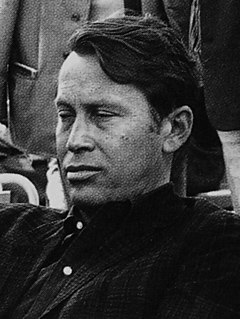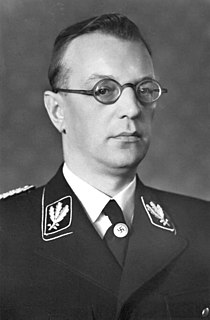A Quote by Ted Simon
The Latin American has no tribe to fall back on, as the African does, no reliable judiciary to defend his rights as the European does, no social ideal or sacred constitution as the North American does, no pervasive mythology to soften life as it does in Asia, and no even an ideology to subscribe to, as does the Russian or Chinese. Without wealth, what is there left to him but his manhood, to be flaunted and defended at every occasion?
Quote Topics
African
American
Asia
Back
Chinese
Constitution
Defend
Defended
Does
European
Even
Every
Every Occasion
Fall
Fall Back
Him
His
Ideal
Ideology
Judiciary
Latin
Latin America
Latin American
Left
Life
Manhood
Mythology
North
North America
North American
Occasion
Pervasive
Reliable
Rights
Russian
Sacred
Social
Soften
Subscribe
Tribe
Wealth
Without
Related Quotes
Therefore, the truly great man, although he does not injure others, does not credit himself with charity and mercy (these are natural to him). He does not seek gain, but does not despise his followers who do. He struggles not for wealth, but does not take credit for leaving it alone... The ranks and emoluments of the world are to him no cause for joy, it's punishments and shame no cause for disgrace.
The Landlord is a gentleman who does not earn his wealth. He has a host of agents and clerks that receive for him. He does not even take the trouble to spend his wealth. He has a host of people around him to do the actual spending. He never sees it until he comes to enjoy it. His sole function, his chief pride, is the stately consumption of wealth produced by others.
European society has always been divided into classes in a way that American society never has been. A European writer considers himself to be part of an old and honorable tradition--of intellectual activity, of letters--and his choice of a vocation does not cause him any uneasy wonder as to whether or not it will cost him all his friends. But this tradition does not exist in America.
In the Native American tradition... a man, if he's a mature adult, nurtures life. He does rituals that will help things grow, he helps raise the kids, and he protects the people. His entire life is toward balance and cooperativeness. The ideal of manhood is the same as the ideal of womanhood. You are autonomous, self-directing, and responsible for the spiritual, social and material life of all those with whom you live.
Infidelity does not consist in believing, or in disbelieving; it consists in professing to believe what he does not believe. It is impossible to calculate the moral mischief, if I may so express it, that mental lying has produced in society. When a man has so far corrupted and prostituted the chastity of his mind, as to subscribe his professional belief to things he does not believe, he has prepared himself for the commission of every other crime.
In fact every belief is an obstacle. It does not even require your realization, since you are already who you are. But without realization, who you are does not shine forth into this world. It remains in the unmanifested which is, of course, your true home. You are then like an apparently poor person who does not know he has a bank account with $100 million in it and so his wealth remains an unexpressed potential
A man's real faith is never contained in his creed, nor is his creed an article of his faith. The last is never adopted. This it is that permits him to smile ever, and to live even as bravely as he does. And yet he clings anxiously to his creed, as to a straw, thinking that that does him good service because his sheet anchor does not drag.
The wise man does nothing but what can be done openly and without falseness, nor does he do anything whereby he may involve himself in any wrong-doing, even where he may escape notice. For he is guilty in his own eyes before being so in the eyes of others; and the publicity of his crime does not bring him more shame than his own consciousness of it.
The southern German has the imagination and emotionality to subscribe to a fanatic ideology, but he is ordinarily inhibited from excesses by his natural humaneness. The Prussian does not have the imagination to conceive in terms of abstract racial and political theories, but when he is told to do something, he does it.
Proust writes, he remembers, physically. He depends on his body to give him the information that will bring him to the past. His book is called 'In Search of Lost Time,' and he does it through the senses. He does it through smell. He does it through feeling. He does it through texture. It is all physically driven, that language.
The president does not have power under the Constitution to unilaterally authorize a military attack in a situation that does not involve stopping an actual or imminent threat to the nation. As commander in chief, the president does have a duty to protect and defend the United States. In instances of self-defense, the president would be within his constitutional authority to act before advising Congress or seeking its consent.

































